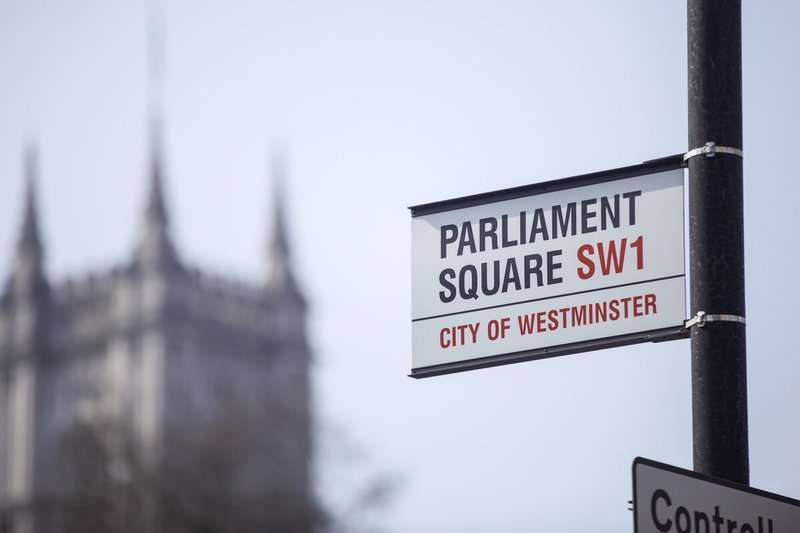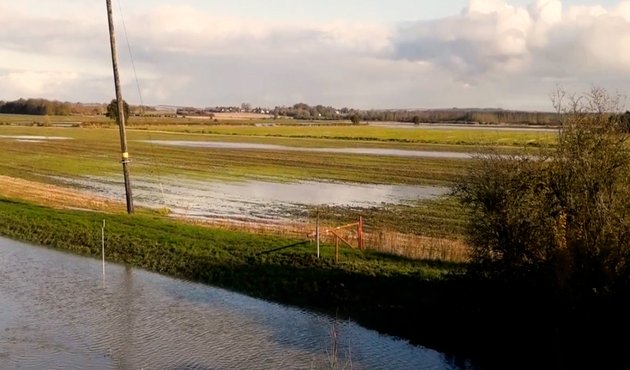Cutting flood defence spending could cost more than leaders think. Making polluters pay is a fair way to protect communities and rebuild trust
Ahead of Wednesday’s spending review, the chancellor faces tough choices on public spending, including whether to maintain funding for flood defences beyond 2026.
Her decision won’t just affect flood prone communities. It could have far reaching consequences for public trust, the next election and, ultimately, the UK’s ability to act on climate.
Most people want more climate action
Despite the outwardly polarised debate, most people in the UK are united on this: they are worried about climate change and they want the government to act.
The problem isn’t lack of support, it’s lack of trust. There’s low confidence amongst voters that policy will be fair, and will support communities like theirs.
Flooding is one of the clearest, most tangible ways that the UK is experiencing climate change. And it is hitting hardest in the areas of the country where voters are turning away from the mainstream political parties.
Eight of the 10 most flood prone constituencies in England are set to vote Reform at the next election. That should sound the alarm.
Rolling back on already insufficient support could badly damage trust at real political cost. Flooding is by far the climate impact that most worries UK voters, and 78% already believe the country is unprepared to deal with the consequences of climate change.
It’s wrong that communities should pay the price
The reality is, communities are getting a bad deal. They’re footing the bill, while major oil and gas companies driving climate breakdown pay nothing for the damage they’re causing.
UK floods have already displaced families, devastated small businesses and left councils facing unmanageable repair costs which threaten the delivery of other essential services. With rising sea levels, this threat is only growing.
This goes beyond household security. The rising tide of flood risk threatens our food security.
The government’s own flood risk assessment found that nearly 60% of our most productive farmland is at high risk of flooding. This puts pressure not just on rural communities, but on the cost of everyone’s supermarket shops and the national economy.
There is a better alternative, one that’s fair, popular and a way to restore trust: getting the biggest polluters to pay.
In 2018, emissions from the world’s biggest 25 oil firms were already estimated to be responsible for over £15 trillion in economic damage and are paying nothing towards repair.
Meanwhile, the mess is left to be mopped up by taxpayers. If the government is serious about a fair transition where “no community is left behind”, this needs to change.

The UK government's public spending review could ultimately affect the UK’s ability to act on climate. Joe Newman / Global Witness
Making polluters pay is a smart economic move
Levying polluters is not just about sticking to promises but responding to political headwinds. Reform is now topping the national polls less than a year into Labour’s premiership.
Rebuilding trust is essential to win voters back. The spending review is an opportunity for the government to prove whose side it’s on.
This approach to freeing up revenue is popular. Over 70% of Reform-curious voters would support making big polluters like oil and gas companies pay for climate damages. This is not a radical ask. It’s common sense.
It’s also a smart economic move. Investing in flood defences, including natural solutions, isn’t just about protecting communities, our homes and our food security, it’s a high return investment in national resilience.
Research by Public First suggests that for every £1 spent on flood defences, the UK avoids £8 in damages, £3 of which directly saves the government forking out for damage to publicly owned infrastructure like roads, railways, schools and hospitals.
There are many, well evidenced fiscal mechanisms out there to fund this. Starting small, introducing a tax on oil and gas production in the North Sea that would increase over time (a Climate Damages Tax) could raise £20 billion over 10 years.
That money could go directly to protecting flood prone communities and oil and gas workers in the transition to new sectors.
Failing to support communities suffering from the most visible impacts of climate change risks confirming many voters’ suspicions: that they’ve been left to fend for themselves. This is not a message that the government can afford right now.
At the spending review, the government faces a choice. It can double down on cuts and confirm that those hit by climate impacts will be on the line for the costs. Or it can choose the fair, popular, economically sound path: to tax polluters, stand by communities and begin rebuilding public trust.
This article was originally published on Inside Track, a blog on environmental policy and politics hosted by Green Alliance


